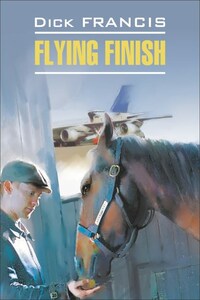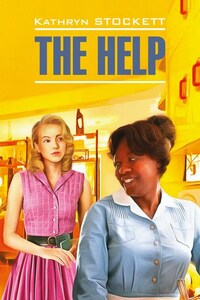Знаменитый английский писатель Дик (настоящее имя Ричард Стенли) Френсис родился в 1920 году в семье потомственных наездников, поэтому быть литератором не собирался. От любимой профессии жокея его отвлекла война. Френсис служил в военной авиации и, из любви к лошадям, самолет свой назвал Пегасом. В марте 1953 года он был представлен королеве Елизавете. Выступления на лошадях из королевской конюшни принесли ему международную известность, а падение лошади Девон Лох, на которой он выступал, сделало его намного известнее многих победителей Большого национального стиппл-чеза.
В 1956 году Дик Френсис стал спортивным обозревателем в газете «Санди Экспресс», а в 1960 году Дик и его жена Мери, имевшая некоторый литературный опыт, решили попробовать себя в жанре триллера. Супруги работали вместе: сначала сочиняли сюжет, потом Дик писал, а Мери правила. Так в 1962 году был создан роман «Фаворит». Но на обложке стояло лишь имя Дика – Мери категорически отказывалась афишировать свою роль в написании книги. Подобным же образом были написаны и остальные сорок романов.
Большинство произведений писателя посвящено скачкам и, скорее, их теневой стороне. Жокеи, бывшие жокеи и владельцы лошадей борются за чистоту и красоту этого прекрасного вида спорта, защищают его от тех, кто хочет на нем наживаться и ради наживы готов на ужасные преступления.
Главный герой всех романов Френсиса – человек не самой героической внешности, обычно находящийся в стесненных финансовых обстоятельствах, но всегда наделенный интеллектом, обостренным чувством справедливости, мужеством – и живучестью. Мелодраматическая линия, которая всегда сопровождает крутой детективный сюжет, неизменно приносила Френсису читательский успех, несмотря на настороженное отношение критики.
Мери умерла в 2000 году, и Френсис заявил, что отныне писать не будет, потому что жена была больше, чем его правой рукой – она была обеими его руками. Но в 2007 году вышла последняя его книга «Ноздря в ноздрю», в работе над которой принимал участие его сын.
Произведения Френсиса не раз были удостоены различных литературных премий. Он избирался председателем Ассоциации детективных писателей Великобритании и в 1996 году получил высшее звание среди американских детективных писателей – Grand Master.
Дик Френсис скончался 14 февраля 2010 года на Каймановых островах в возрасте 89 лет.
‘You’re a spoilt bad-tempered bastard,’ my sister said, and jolted me into a course I nearly died of.
I carried her furious unattractive face down to the station and into the steamed-up compartment of Monday gloom and half done crosswords and all across London to my unloved office.
Bastard I was not: not with parents joined by bishop with half Debrett and Burke in the pews[1]. And if spoilt, it was their doing, their legacy to an heir born accidentally at the last possible minute when earlier intended pregnancies had produced five daughters. My frail eighty-six year old father in his second childhood saw me chiefly as the means whereby a much hated cousin was to be done out of an earldom[2] he had coveted: my father delighted in my existence and I remained to him a symbol.
My mother had been forty-seven at my birth and was now seventy-three. With a mind which had to all intents stopped developing round about Armistice Day 1918, she had been for as long as I could remember completely batty. Eccentric, her acquaintances more kindly said. Anyway, one of the first things I ever learnt was that age had nothing to do with wisdom[3].
Too old to want a young child around them, they had brought me up and educated me at arms length[4] – nursemaids, prep school and Eton – and in my hearing had regretted the length of the school holidays. Our relationship was one of politeness and duty, but not of affection. They didn’t even seem to expect me to love them, and I didn’t. I didn’t love anyone. I hadn’t had any practice.
I was first at the office as usual. I collected the key from the caretaker’s cubbyhole, walked unhurriedly down the long echoing hall, up the gritty stone staircase, down a narrow dark corridor, and at the far end of it unlocked the heavily brown varnished front door of the Anglia Bloodstock Agency. Inside, typical of the old London warren-type blocks of offices, comfort took over from barracks[5]. The several rooms opening right and left from the passage were close carpeted, white painted, each with the occupant’s name in neat black on the door. The desks ran to extravagances like tooled leather tops, and there were sporting prints on the wall. I had not yet, however, risen to this success bracket.
The room where I had worked (on and off) for nearly six years lay at the far end, past the reference room and the pantry. ‘Transport’ it said, on the half-open door. I pushed it wide. Nothing had changed from Friday. The three desks looked the same as usual: Christopher’s, with thick uneven piles of papers held down by cricket balls; Maggie’s with the typewriter cover askew, carbons screwed up beside it, and a vase of dead chrysanthemums dropping petals into a scummy teacup; and mine, bare.
















